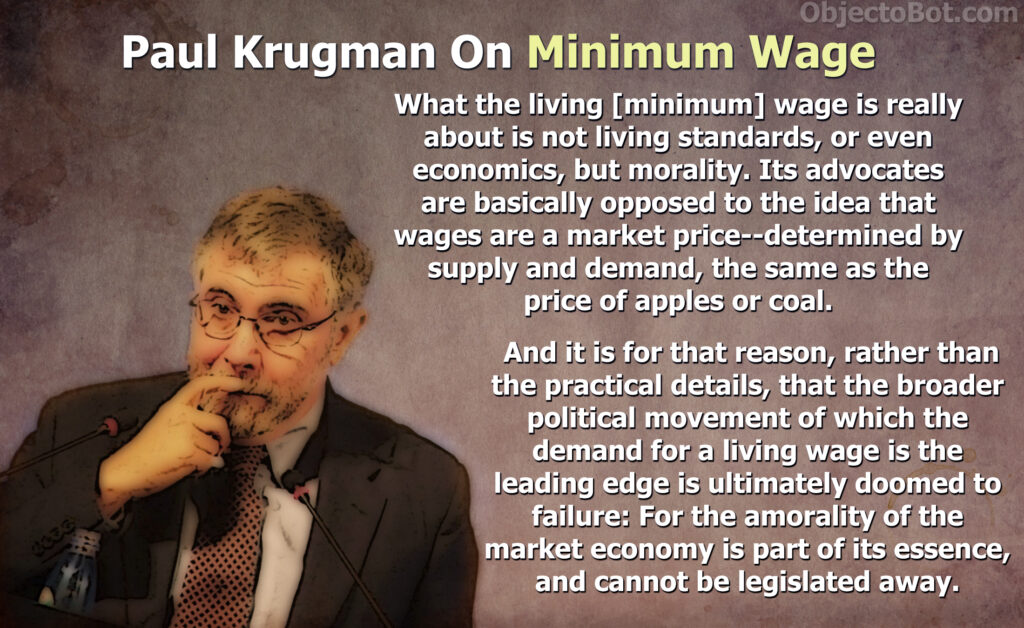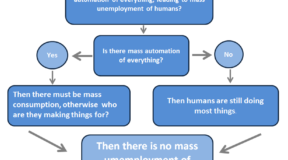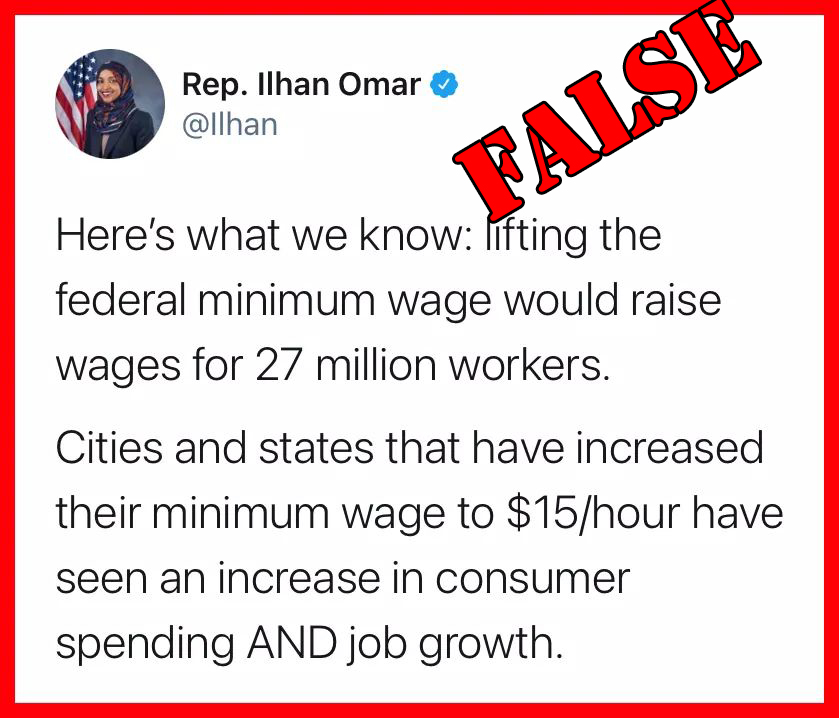
Rep. Ilhan Omar and many other left-leaning think tanks and operatives are repeating the talking point that 27 million workers would receive a wage raise if the Federal minimum wage would be increased to $15/hour. This is of course far from the truth.
We who are economically literate, and who want to see lower-skilled workers, and everyone really, have an increase in their standards of living, understand that consequences of policies like the minimum wage do not help, and actually tend to hurt the people they intend to help.
If you are skeptical of my analysis simply because I am right-leaning, you don’t need to, minimum wage is one of the most studied subjects in economics. If there is any place where you can argue the science is settled it is here, even Paul Krugman teaches about the detrimental effects of minimum wage laws in his economics textbooks.
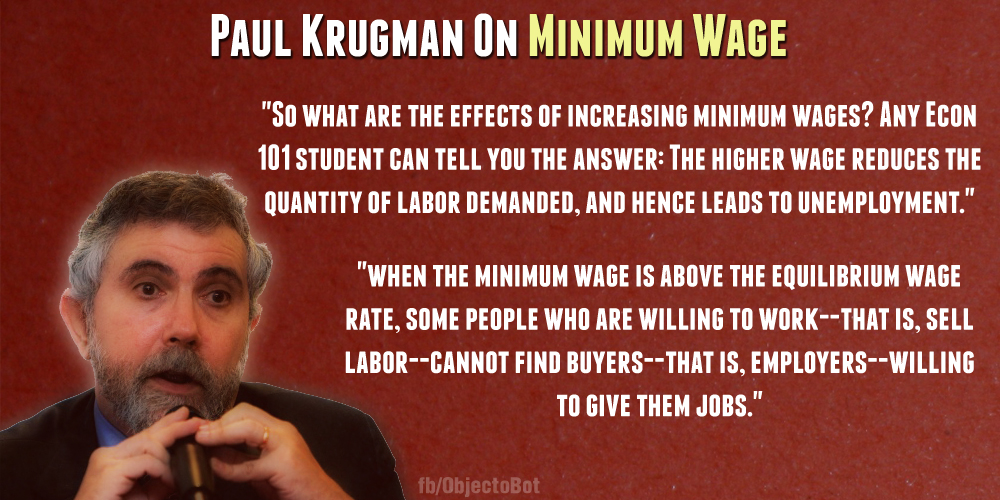
The CBO estimates that if the minimum wage is passed about 1.5 million jobs will be lost. If we have one cartoon character represent 1 million jobs, and we place 27 characters to represent the 27 million workers that are supposed to be helped by minimum wage increase, we know that about 2 of them will not be helped, but rather hurt because they will lose their jobs.

Keep in mind CBO estimates are very conservatives, historically the end result are usually much higher, whether they are estimating government spending or economic impacts. Rounding up from 1.5 to 2 in this case I think is reasonable.
Why would job losses occur if the minimum wage is raised? Employment is one of the largest costs for any business. When businesses are forced to increase wages their costs greatly increase, and some businesses are simply not profitable enough to afford this. Businesses that do not provide jobs that generate more than $15/hour in revenue are more likely to go out of business.

So what about the rest, isn’t a minimum wage of $15/hour helping 25 million people? Not necessarily. If we assign a productivity rate to our cartoon characters we can illustrate what happens to low-skilled labor whose current market wage is well below $15/hour. They will also, in most cases, lose their jobs. Though those jobs will not be gone forever as in our previous example where the businesses had to close, the workers currently occupying those positions will be replaced by higher-skilled workers whose productivity justifies a higher wage. So if your intention was to help low-skilled workers with a minimum wage, clearly this would have the opposite effect.
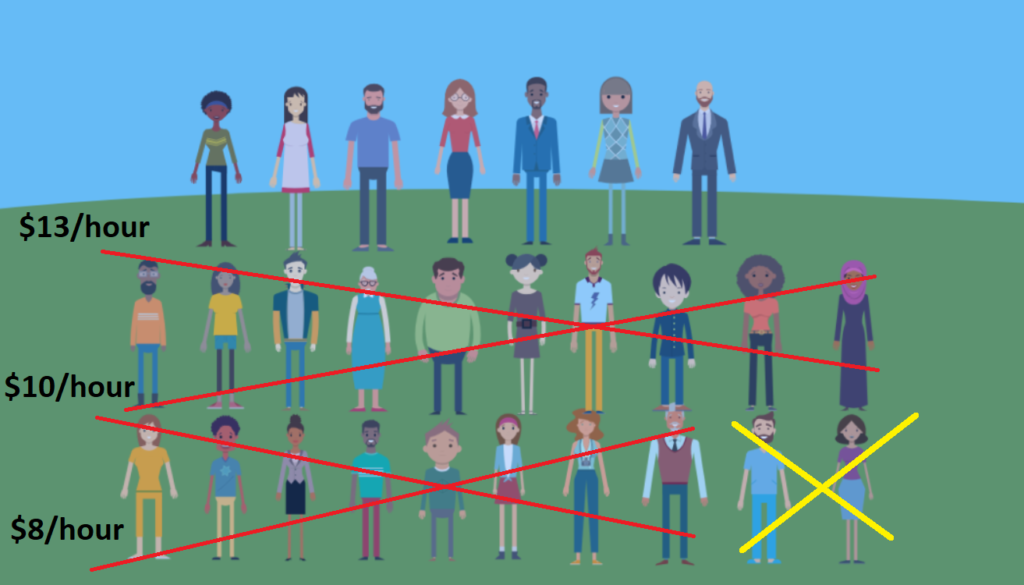
At some point, of course, it becomes financially more expensive to replace workers, so starting at some wage level, there will be a group of people who will retain their jobs and get a raise in wages. However, even this comes at a cost. Generally what employers do, is reduce benefits compensation, reduce hours, and raise prices.
The second part of Omar’s argument is that a $15/hour minimum wage has already been implemented in some cities with a benefit to the low wage workers and those cities have also experienced job growth. Well, we know the left wants to believe this, however, this is not true either.
For instance in Seattle “they found that the policy reduced hours worked in low-wage jobs by 6-7 percent, consequently, total payroll for such jobs decreased. That means the total amount that employers paid to workers was less with the new minimum wage in place than projected payroll if the policy hadn’t gone into effect.” So if employers paid out less with a $15 minimum wage than without one, how can one argue that the low wage workers benefited, clearly they suffered.
In New York, following the $15 minimum wage increase, restaurant jobs fell to the lowest point since the recession after 9/11.
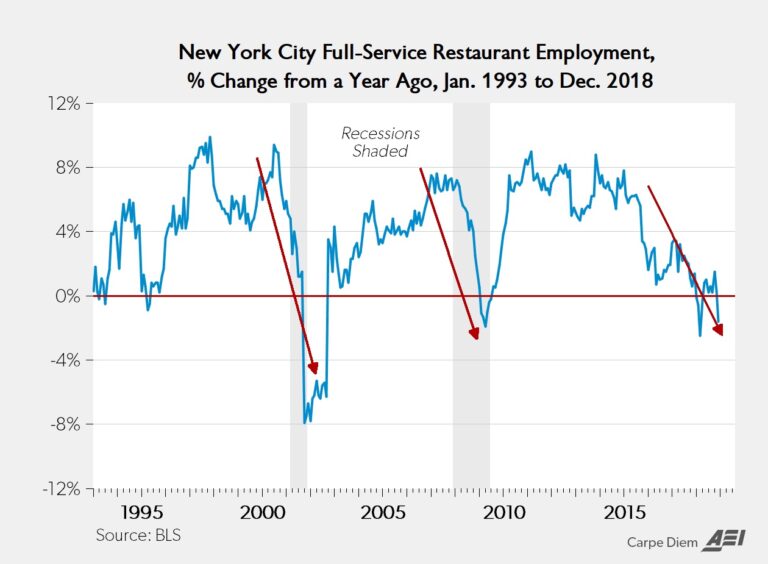
These are the actual results of a $15/hour minimum wage policy when applied to New York and Seattle, large cities with an already high cost of living where such a policy is the most likely to work. Now imagine the damage that a $15 national minimum wage would cause to low-skilled workers living in rural areas. If one’s intentions is to help low-skilled labor rather than hurt it, minimum wage policy is not the way to go.
Paul Krugman interestingly points out, that for some of the minimum wage advocates, it is not really about economic results but simply an ignorant opposition to the laws of supply and demand, and hence why such policies, as a vehicle to produce desired economic results, are ultimately doomed to failure.
